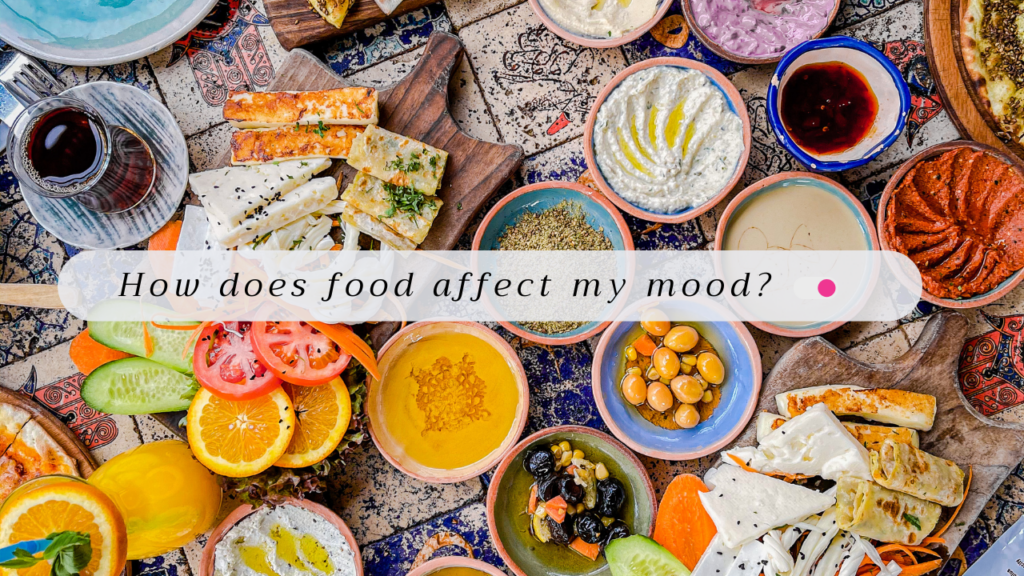
In my years as an Ayurveda practitioner, I’ve watched firsthand how the food we eat can profoundly influence our emotions and overall well-being. “Food & Mood” explores the age-old wisdom of Ayurveda and its modern relevance in nurturing both our gut and our Spirit. I’ve seen so many clients transform not only their physical health but also their mood and energy levels by simply tuning into the signals of their body and choosing nourishing, wholesome foods.
Modern science has confirmed what Ayurveda has understood for thousands of years that there’s an intricate connection between our gut and brain. This relationship is understood through concepts like Agni, our digestive fire, and Ama, the toxins that arise when digestion weakens. Whether you’re looking to lift your mood, improve digestion, or simply feel more vibrant, understanding this connection is fundamental for balanced health and a more joyful life.
The Gut-Mood Connection – Modern Science and Ayurveda
Modern research shows that nearly 90% of serotonin, the “feel-good” neurotransmitter, is made in our gut. This supports what Ayurveda has taught for centuries and written in ancient texts, when your gut is healthy, your mood, energy, and mental clarity naturally improve. Modern science also talks about the vagus nerve, which acts like a superhighway, sending important signals from your gut to your brain. These signals help control digestion, heart rate, mood, stress response, and inflammation. When your vagus nerve functions well, it helps you relax and supports overall health. Ayurveda, too, teaches that the state of your gut directly influences your mind and emotions.
In Ayurvedic philosophy, this relationship is understood through the careful balance of Agni (digestive fire) and Ama (toxins). When Agni is robust, food is efficiently transformed into nourishing energy, encouraging clarity and emotional balance. But a weak Agni leads to Ama buildup, which can cloud the system and contribute to mood disturbances such as irritability or lethargy.
Ayurveda also explains that the mind is explained as in three different attributes or gunas, namely Sattva (peace and clarity), Rajas (activity and restlessness), and Tamas (inertia and dullness). A balanced digestion, with strong Agni and minimal Ama, encourages a Sattvic state of mind, promoting harmony and a calm, uplifted mood. This understanding forms the foundation of Ayurvedic approaches to emotional well-being through nutrition.
Ayurvedic Nutrition and Its Impact on Emotions
Ancient Ayurvedic texts, including the Charaka and Sushruta Samhitas, emphasise that food is not just for sustenance, it is the foundation of our physical, mental, and emotional health. Ayurveda teaches that the quality of our diet directly influences our internal balance, shaping our state of mind as much as our physical body. In my practice, I’ve also observed how nourishing your body with the right foods can lead to a noticeable uplift in your mood. Ayurveda teaches us that food is medicine, and the quality of what you eat directly affects your internal balance, including your emotions. A Sattvic diet, rich in fresh fruits, vegetables, whole grains, and balanced spices, nourishes both body and mind, encouraging emotional resilience and mental clarity.
I often advise my clients to choose foods that are warm, moist and slightly oily, easily digestible, and full of natural goodness. Including digestive spices like ginger, turmeric, cumin, coriander and fennel further improves this process, supporting both the body and mind.
The transformation in my clients’ emotional well-being through these mindful food choices has been remarkable. When you nourish your body with foods that improve your digestive fire, you’re not only feeding your body, but you’re also feeding your mood, bringing clarity, joy, and balanced energy throughout the day.
Practical Ayurvedic Strategies for Balancing Food and Mood
Drawing from years of experience, I’ve learned that small, intentional changes can make a big difference in balancing both your digestion and your mood. Here are some practical strategies you can implement as well, remembering these are generic recommendations:
- Prioritise a Warm, Nourishing Diet
Focus on warm, slightly oily cooked foods that are gentle on your digestive system. This approach especially works when digestion is weak and vata is out of balance. It supports in strengthening Agni and prevents Ama formation, creating a foundation for emotional balance. - Practice Mindful Eating
Take time to truly enjoy your meals. Turn off distractions, sit down comfortably, and chew slowly. This practice allows your body to register nourishment fully, supports efficient digestion, and sends calming signals to your brain, contributing to emotional balance. - Establish a Consistent Daily Routine (Dinacharya)
A structured daily schedule helps stabilise your body’s internal rhythms. E.g. begin your day with a glass of warm water or herbal tea, have your meals at consistent times, and incorporate moments of calm throughout the day. This consistency reinforces your Agni and creates a stable emotional environment. - Incorporate Gentle Movement and Relaxation Techniques
Practice yoga, pranayama (breathing exercises), or a short walk after meals. These practices help digestion, reduce stress levels, reduce or prevent ama formation, and support a balanced mood. Regular practice of Yoga Nidra will also help the mind and body relax. - Use Herbal Support
Consider integrating herbs like Triphala for detoxification or ashwagandha to help manage stress. These herbs have been trusted for centuries to promote both digestive health and emotional resilience. Remember to work with a practitioner before starting any herbs.
The remarkable connection between food and mood is a proof of the timeless wisdom of Ayurveda. By nurturing your digestive fire, Agni, and eliminating the buildup of toxins, Ama, overall a holistic approach of ayurveda, pranayama, diet, and lifestyle, you create a solid foundation for emotional balance and vibrant well-being. The simple practices we’ve explored, consuming warm, nourishing foods, using digestive spices, practicing mindful eating, and following a consistent daily routine, can transform both your digestion and mood.
I invite you to incorporate these Ayurvedic principles into your daily life and observe the positive changes in both your digestion and emotional well-being. Remember, your path to harmony begins with a single mindful bite, and every small step toward balanced nutrition contributes to a more joyful, energised life.



